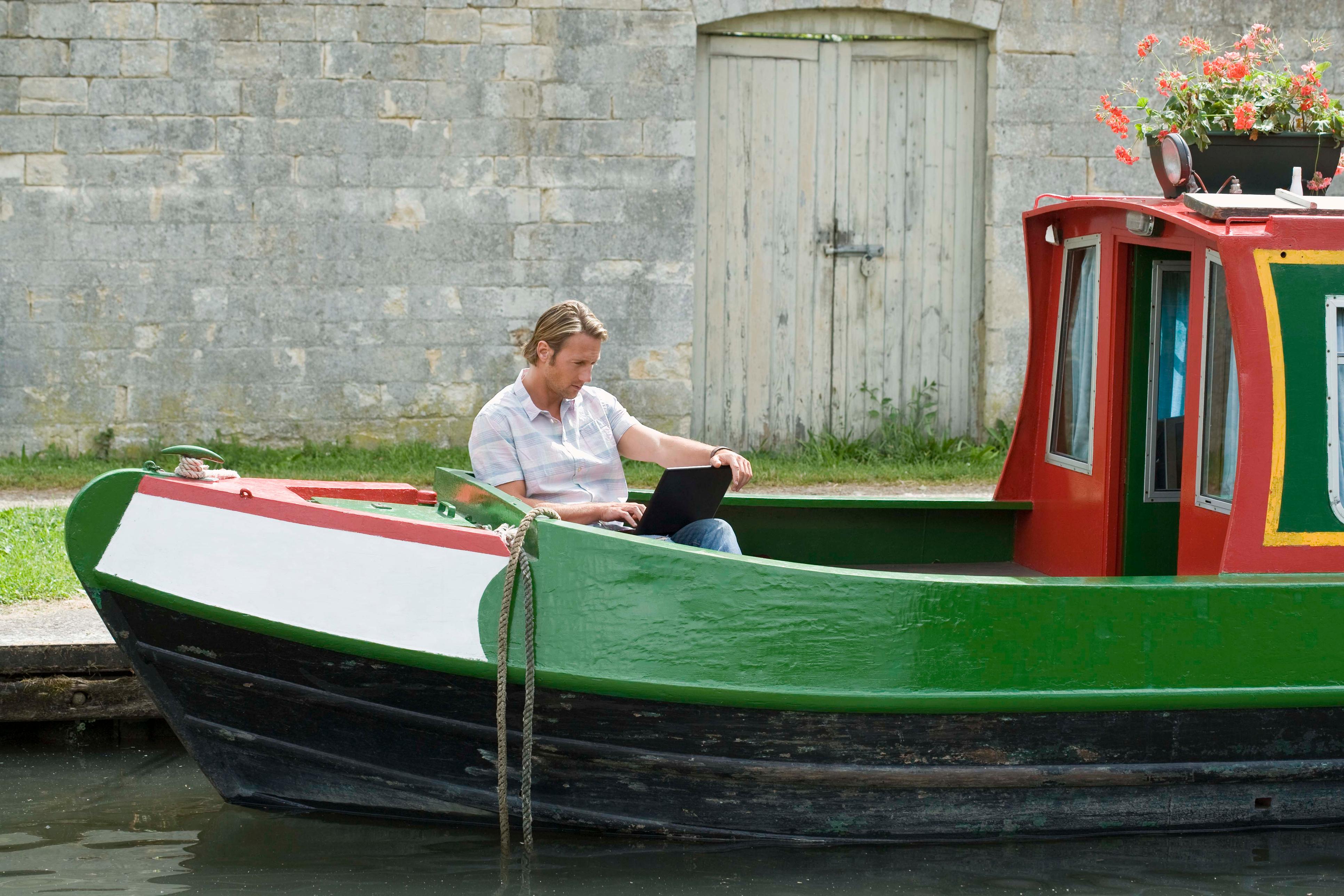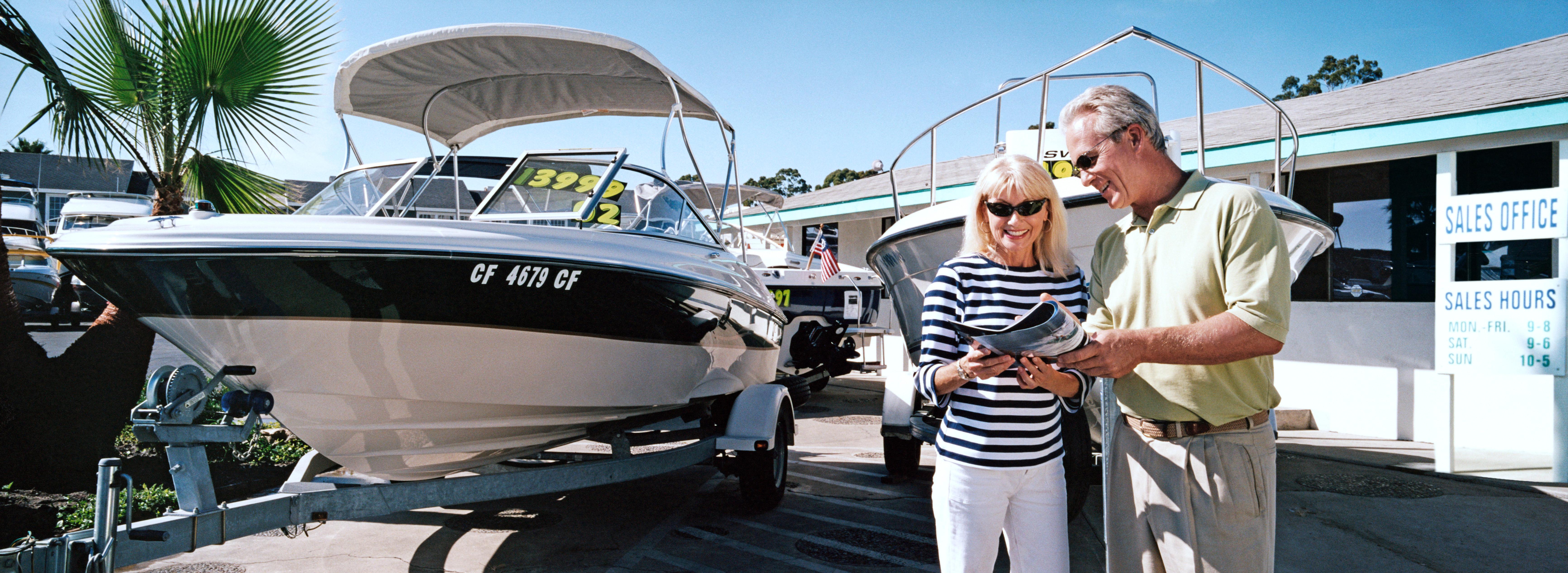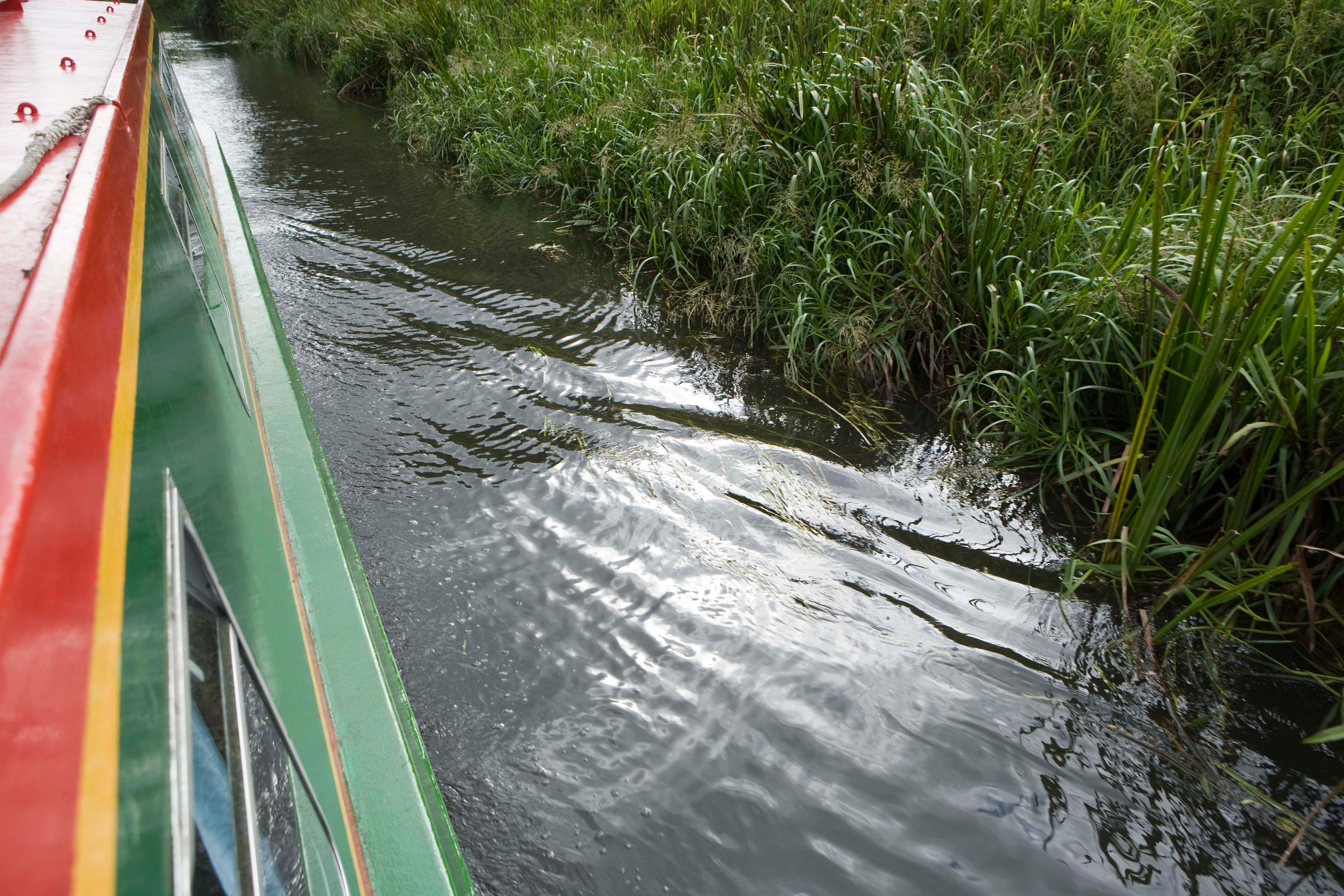Here's Why a Houseboat Might Be a More Sustainable Living Option
Published April 6 2021, 4:18 p.m. ET

Living a sustainable lifestyle can mean different things to different people, and some go as far as to choose unique, eco-friendly housing options – like a tiny house or even a houseboat. These options are becoming more popular for financial reasons and for their generally lower impact, but as more people consider the latter option, it begs the question: are houseboats really sustainable?
A houseboat is essentially a tiny home on water. Similar to a tiny house, a houseboat cuts down on space, can be cheaper upfront (and in the long run), and it also uses less electric, water, and gas. So, for those reasons alone, one could argue that a houseboat is more eco-friendly than a traditional home and therefore is sustainable. But there’s a lot more that goes into living on a houseboat. Let’s deep dive into the sustainability of a houseboat.
Are houseboats sustainable?

As previously mentioned houseboat is effectively a tiny home on water — your square footage is significantly smaller than other living options, which theoretically can save you money on gas, water, and electricity. With less waste made, it's definitely an eco-friendly alternative to a full-size home.
Meanwhile, most houseboats are likely purchased secondhand, which saves virgin building materials. Building a new home from scratch requires wood, stones, slate, and beyond.
Are houseboats a good investment?

The answer to this question depends on who you talk to. Some consider houseboats a good investment because they can be cheaper upfront (and perhaps even in the long run), averaging at about $50,000. Comparing that to the average price of a mortgage ($1,275/mo on a 30-year fixed), according to Business Insider plus the median price of a home, ($284,600 as of May 2020), in addition to the down payment and additional closing costs, the upfront price of a houseboat is generally less expensive.
But, one must consider depreciation. According to Yahoo, unlike a conventional home that typically increases in value over time, a “floating house” is more susceptible to nature-induced disrepair.
“You can expect the resale value of that home to inch down year after year once the wear and tear of living on the water slowly devalues the asset," Yahoo reports, and therefore, a houseboat owner cannot always expect their resale value on their houseboat to increase or be a “good investment” while reselling the property.
While buying a houseboat might not be fiscally lucrative, it can be cheaper to live on. Like tiny house owners – 89 percent of which have significantly less debt than the average home-owning American, the average cost of living on a houseboat can be as low as $6,000 yearly. Houseboats also don't require owners to pay property tax. Fixed costs for houseboats do, however, include slip or dock rental fees, insurance, and sales tax. Houseboat owners may also qualify for certain tax breaks as well.

Another thing to consider is how much a houseboat owner would be saving as opposed to a rental. Do you live in a city where rents, mortgages, and house prices are significantly higher than the cost of living in a houseboat? If so, that makes the financial argument in favor of a houseboat much stronger, though it depends on where you live.
Investing in a houseboat may also be an investment in your quality of life. Most people who choose to live on a houseboat or floating house do so because of the unique kind of lifestyle that it provides. If living on a houseboat could improve your mental health and overall wellbeing, then that's an invaluable kind of investment into your happiness that you just can’t put a price on.
Can you live fulltime on a houseboat?

It’s up to you! While it’s totally feasible to live full-time on a houseboat, some people choose to spend their weekends or vacations aboard their floating home. But really it depends on the kind of houseboat you have, and what it’s outfitted for. If you wanted to live fulltime on a houseboat, it’s absolutely a possibility.
Where does the waste on a houseboat go?

It’s what we’re all wondering: Where does the waste on a houseboat go? Houseboat sewage typically empties into a holding tank on the boat. The sewage can then be pumped out when the houseboat is docked. Depending on the marina where you dock, you may even have the option for a specific sewage boat to come to your boat every few days — or weeks — to suck out your houseboat’s sewage, but of course, for a fee.
Where to find existing houseboats:

If you’re totally set on buying a houseboat, or even if you’re just curious and want to take a look, you may be wondering where you can peruse existing houseboats for sale. A few of our favorite websites to find existing for-sale houseboats include Boats.com, BoatTrader.com, CooperJacobs.com, HouseBoatsBuyTerry.com, and PopYachts.com. Of course, you can also try your houseboat-buying luck on sites like Ebay, too. Happy sails.